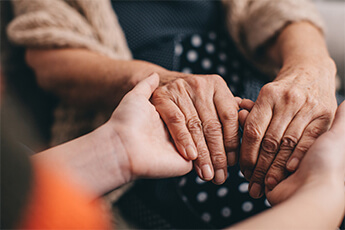Mental illness stigma: Inspire nembers share how they cope


In 2020, close to 53 million Americans experienced some type of mental health disorder. That’s 1 in 5 adults. Despite the fact that there are effective therapies and medications for nearly all of the more than 200 types of mental illnesses, the American Psychiatric Association says half of those affected don’t seek help.
Fears of stigma, prejudices, and discrimination often keep people from talking about their problem, even to healthcare professionals and their loved ones. If you or someone you love has a mental illness, you’re probably familiar with these concerns.
Many people worry that others will reject or avoid them if they know about their mental illness. They may also have concerns about job security, and fear that coworkers and higher-ups may consider them unstable. These public, or societal, stigmas can lead to self-stigmatization. You or your loved one may start to have negative thoughts. Feelings of shame or embarrassment may keep you from getting the care that can help you get and stay mentally well.
People who develop tardive dyskinesia have even more reasons to worry. Tardive dyskinesia is a side effect of certain medications used to treat psychotic disorders, mood disorders, and other mental illnesses. It causes uncontrollable symptoms like facial grimacing, tongue thrusting, and rapid blinking. These symptoms can be unsettling to those who witness them, especially when they don’t understand the underlying cause.
Overcoming the stigma of mental health disorders
If you or a loved one has a mental illness or tardive dyskinesia, there’s a strong chance that you’ve witnessed stigmas and discrimination in action. It can help to know that you’re not alone. It’s also helpful to hear how others address these issues. Here, members of Mental Health America’s mental health support group and community on Inspire share how stigma affects them — and how they strive to overcome it.
Advocate for more mental health awareness and services
“I believe more needs to be done in increasing the knowledge and awareness of mental illness in communities-in schools, businesses, healthcare facilities, and Faith-Based Organizations also. More seminars and public forums are needed-so residents understand and are also able to help people get the help they need. We as consumes must also become advocates by joining MHA and NAMI and other groups that support the mentally ill.” – Inspire member
Address the issue of trust
“Why is it we can't talk about mental health freely? Is it the stigma? Are we afraid of what others will say? Perhaps its the mis-educated people out there that say stupid things regarding mental health. If you have walked the walk and been down this road you understand the ups and downs of the illness. Mine has been an interesting journey, but I wouldn't change it for the mere fact that it helps me to identify with what my brothers life was like before he passed, my dad, and the many people I have met over the past few years in DBSA meetings... I admit, there are very few people that I have told about my Bipolar challenge, one at work, one at church, so I guess we are saying it's difficult to find someone you can trust. Perhaps thats the issue. Trust. What do you think is the problem with why this subject isn't always talked about more freely?” – Inspire member
Advocate for yourself
“…You are your best advocate. Others will bring you down from time to time. I experience low points every month. Persist and keep after your journey to healing. However bad your coworkers make you feel those are their anxieties, their fears and their problems that they are projecting onto you.” – Inspire member
Find the courage to speak out
“I come from a generation that strongly believed that depression, anxiety and other mental illnesses should be hidden at all cost, especially at work, as it would derail your career forever. I have bought into this belief and behaviour for 40 years (span of my career). Looking back, I wonder how others respond? Like abuse, for example, or any kind of discrimination, am I as guilty as those who subject others to this kind of behaviour and pain? Do we perpetuate what we are subjected to by keeping quiet? Where do we find the courage to speak out, no matter the consequences? If you are willing, please share your stories with me.” – Inspire member
Confront discrimination with education
“…Someone once said that I wear my disorder "like a badge." I can tell you the reason that most people don't share the information about their disorder has to do with discrimination. I have been discriminated against, by people in the field no less! I have worked with clinicians that love children and are compassionate to their needs but speak very poorly of their parents, who have had similar mental health needs. There is definitely a lack of compassion...and if social workers and psychologists, or people who have studied these conditions don't get it, how is it even plausible that society can have a clue? I have learned that being honest about my disorder usually gets me hurt. People say they want the truth, but only so long as it does not make them uncomfortable. We still need a voice. We still need famous men and women who have managed their illness to step up and speak out. We still need to come together and create a community that society can not turn it's back to. In short, we need GOOD publicity, not just the kind that adds to stigma.” – Inspire member
Seek others who understand and want to help
“I had a psychology professor once say that a disorder within the brain is no different than a heart condition...etc. Both share a simililarity in that both involve an organ not workly properly. I believe this to be true. I have a sister who was diagnosed with bipolar disorder and have witnessed the stigma that follows with this label. Once that word is spoken, it seems everyone believes the individual to be "crazy" or they assume the individual is "faking" the condition. My sister is very open about her disorder. I am glad that she is willing to share a subject many are afraid to talk about, but, I have warned when getting to know someone that sharing this detail early on may have an unwanted reaction. I once thought that being more educated about this and other disorders would help the public be more understanding. Sadly, this is not the case. Even in college classes with other psych majors I have seen students laugh and joke after watching videos of individuals displaying severe depressive and manic symptoms. It angers me and frustrates me that so many people, even with the field, can be so uncompassionate and ignorant about mental disorders in general. I hurt for those with mental disorders because people dont understand how lonely and isolated one can feel due to lack of social support and acceptance. Thankfully for sites like this, individuals can find others who are more understanding and willing to help.” – Inspire member
Speak up when you hear offensive or hurtful comments
“There's no denying that there's a huge stigma surrounding mental illness, but it's hard to know what to do about it. For anyone on here in college or high school, I wanted to let you know of a group called Active Minds Inc. which strives everyday to reduce the stigma of mental illness. I am co-president of the chapter at my college and we just held a Day Without Stigma - we all wore silver ribbons and delivered them to everyone on campus (1500!) with explanations about stigma and a couple of statistics. We also had a student panel of some of us describing our experiences. It reached a lot of people, but it's only with groups like this where mental illness can begin to be normalized that the stigma will ever begin to get eroded. It's hard in one's everyday life to stand up against stigma, especially if you're not feeling so strong that day, but wherever you can, without saying more than you are comfortable, let people know when they are saying something hurtful or offensive - most likely they are just ignorant and unaware of what they are saying. I'll end with a quote from Bill Clinton ‘Mental illness is nothing to be ashamed of, but bias and stigma shame us all.’” – Inspire member
Recognize that people are afraid of the unknown
“I think those are great ideas, but I also believe we should stand up and show what mental ilnesses are. We are regular people that are trying to live our lives the best we can. People are afraid of the unknown. When I go to rehab depending on why I am there, I love to ask,if they dont know me to identify why I am there. It Is instantaneous that they answer correctly. They say I look like the Poster child for Anorexia/PTSD. I am not that thin. I find the stigma the most in hospitals. Emergency rooms, in particular. I hear due to me telling the meds i'm on and why, Psych patient. For my Major in college, I had a long semester of Ethics. I wonder how much bedside manners and ethics they are taught. One doctor out of hundreds havr treated me like a human and not a rape survivor. I would be glad to be helpful to stop the stigmas against mental illness.” – Inspire member
Educate your coworkers (and even mental health professionals)
“I am a licensed professinal counselor (mostly do marriage counseling) and I am Bipolar 1, and definitely have very "off" moments. I find unbelievable discrimination against mental illness by many professional counselors, who think someone "like me" (bipolar + a mountain of meds) should not be allowed to counsel people....the thinkinng is that our mental illness gets in the way of us being effective counselors. I totally disagree...I think my struggle with a mental illness has made me a more compassionate, down to earth counselor. I have some "safety" measures in place if my bipolar-ness starts effecting my ability to counsel. When things get shakey, I will take a few days off, regroup and carry on. My clients know up front that I have a mood disorder and the medications sometimes have side effects that I will point out to them if it is obvoius. My clients (except the ones with mental illness) are VERY prejudice and misinformed about bipolar disorder, and other mental illness .When I see their misonceptions, I correct them and educate them about the realities of mental illness, and a lot of people they label as "mentally ill" are simply very confused, upset people who get over that rough spot and then get on with their lives. (wouldn't that be nice if the same was true for us?) I just get frustrated, especially with co-workers attitude towards bipolar folks. In my opinion we should get a pat on the back for continuing our struggle with stigma, mood swings, medication changes and side effects...just how hard it is to live a semi-normal life. It is hard work and I don't think people with a mental illness get the proper recognition for their success in living life....what comes so easy for "normal" folks, is very hard for us.....we deserve credit for our strengths to keep going.” – Inspire member
Connect with others who won’t judge
“I also suffer with GAD and depression for 34 years..when I first started suffering with it I had no clue what it was..a friend mentioned that I may have depression...wow...and anxiety..i was`t even sure what it meant..i ended up at a human service center after several trips to my regular dr..I think he threw up his hands and sent me there..its there I found out what it was all about..i was embarrassed to go..i didn`t tell anyone but my immediate family..I believe it has come quite aways since then as far as the stigma goes..but it still has stigma..the thing I have found about it is that people who don`t suffer with it can not understand it fully...we one here DO understand it..i would have been so happy to have had a forum like this back when it reared its ugly head..same with when I got fibromyalgia no one had even heard of it much at all..now tv commercials have it on to sell their drugs..May I ask if your GAD and depression is pretty much under control..i take meds for it..I use to think I should get off them and would try but always had a relapse so I have now just figured I would live out my life on them..its nessecary for me..we would love to talk to you on here..feel free to chat anytime.” – Inspire member
Try to make a difference
“…I have learned that I either over or under-share with co-workers and I have been treated very unsympathetically by previous line managers (as you say, careful who you trust). Nevertheless, I managed to keep smiling (mostly) through sheer determination to keep my work persona up and running and have reached a fairly high level management position. What a great idea to go part-time. I would definitely have tried this if my position allowed it. I am paying a significant price for keeping up the pretence and supporting everyone else with their challenges, especially since COVID hit and we had to reinvent the way we work, communicate and teach (I work in Higher Education). It has been excruciating. But being in a leadership position fills me with a sense of responsibility to speak out, not only about my own issues, but about how we support (or not) colleagues and staff and how we address the stigma still systemically embedded. Have to find my voice, the right time, place and audience I guess. At least I can look back and say I tried to make a difference.” – Inspire member
Sources
Parcesepe AM, et al. Public stigma of mental illness in the United States: A systematic literature review. Administration and Policy in Mental Health. September 2013.
Stigma, prejudice, and discrimination against people with mental illness. American Psychiatric Association. August 2020.
Mental illness and the family: Recognizing warning signs and how to cope. Mental Health America.
Mental health by the numbers. National Alliance on Mental Illness. March 2021.
Disclaimer
Member comments are lightly edited for length and to remove identifying information but are otherwise reproduced as they appear in the community as part of public posts.
This content is for general informational purposes only and does not necessarily reflect the views and opinions of any organization or individual. The content should not be used as a substitute for professional medical advice, diagnosis, or treatment. Please consult your healthcare provider about any questions you may have regarding a medical condition.




